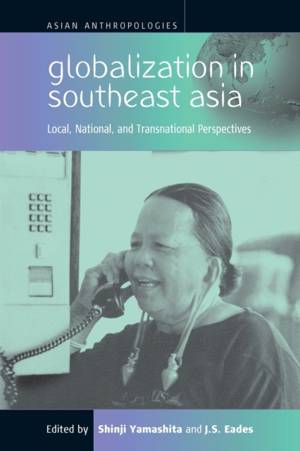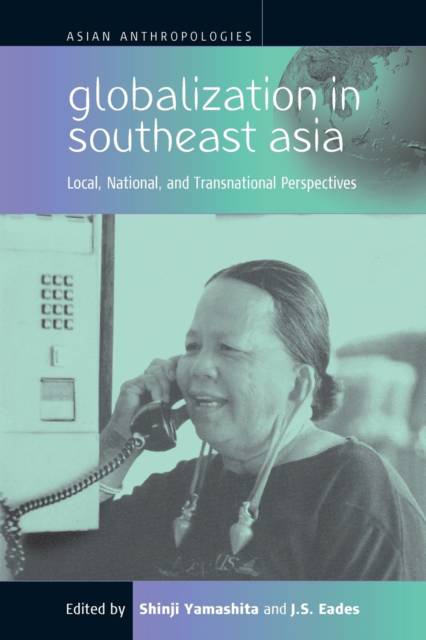
- Afhalen na 1 uur in een winkel met voorraad
- Gratis thuislevering in België vanaf € 30
- Ruim aanbod met 7 miljoen producten
- Afhalen na 1 uur in een winkel met voorraad
- Gratis thuislevering in België vanaf € 30
- Ruim aanbod met 7 miljoen producten
Globalization in Southeast Asia
Local, National, and Transnational Perspectives
Omschrijving
The rapid postwar economic growth in the Southeast Asia region has led to a transformation of many of the societies there, together with the development of new types of anthropological research in the region. Local societies with originally quite different cultures have been incorporated into multi-ethnic states with their own projects of nation-building based on the creation of "national cultures" using these indigenous elements. At the same time, the expansion of international capitalism has led to increasing flows of money, people, languages and cultures across national boundaries, resulting in new hybrid social structures and cultural forms.
This book examines the nature of these processes in contemporary Southeast Asia with detailed case studies drawn from countries across the region, including Indonesia, Malaysia, the Philippines, Singapore and Thailand. At the macro-level these include studies of nation-building and the incorporation of minorities. At the micro-level they range from studies of popular cultural forms, such as music and textiles to the impact of new sects and the world religions on local religious practice. Moving between the global and the local are the various streams of migrants within the region, including labor migrants responding to the changing distribution of economic opportunities and ethnic minorities moving in response to natural disaster.
Specificaties
Betrokkenen
- Uitgeverij:
Inhoud
- Aantal bladzijden:
- 272
- Taal:
- Engels
- Reeks:
- Reeksnummer:
- nr. 1
Eigenschappen
- Productcode (EAN):
- 9781571812568
- Verschijningsdatum:
- 1/12/2002
- Uitvoering:
- Paperback
- Formaat:
- Trade paperback (VS)
- Afmetingen:
- 152 mm x 229 mm
- Gewicht:
- 367 g

Alleen bij Standaard Boekhandel
Beoordelingen
We publiceren alleen reviews die voldoen aan de voorwaarden voor reviews. Bekijk onze voorwaarden voor reviews.








